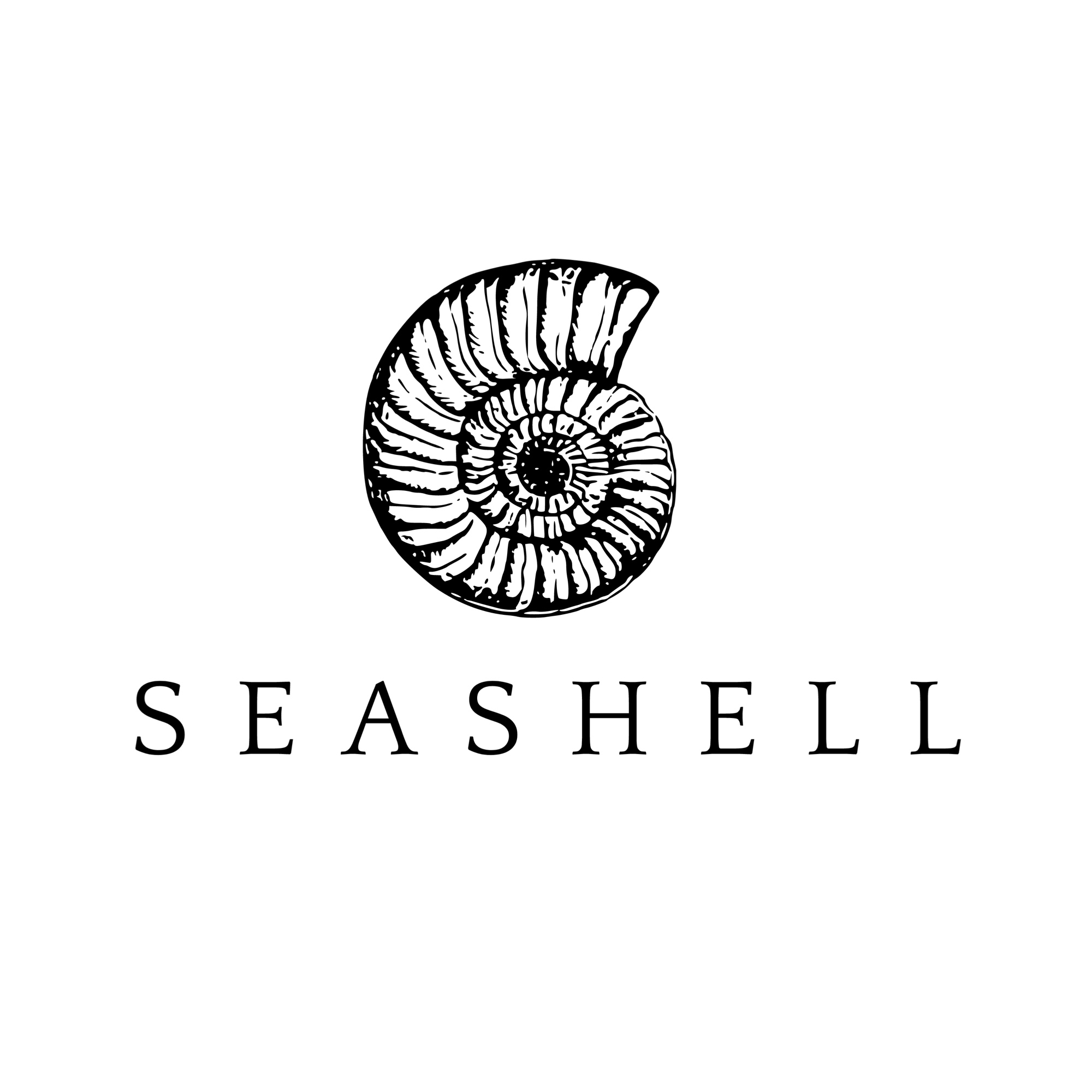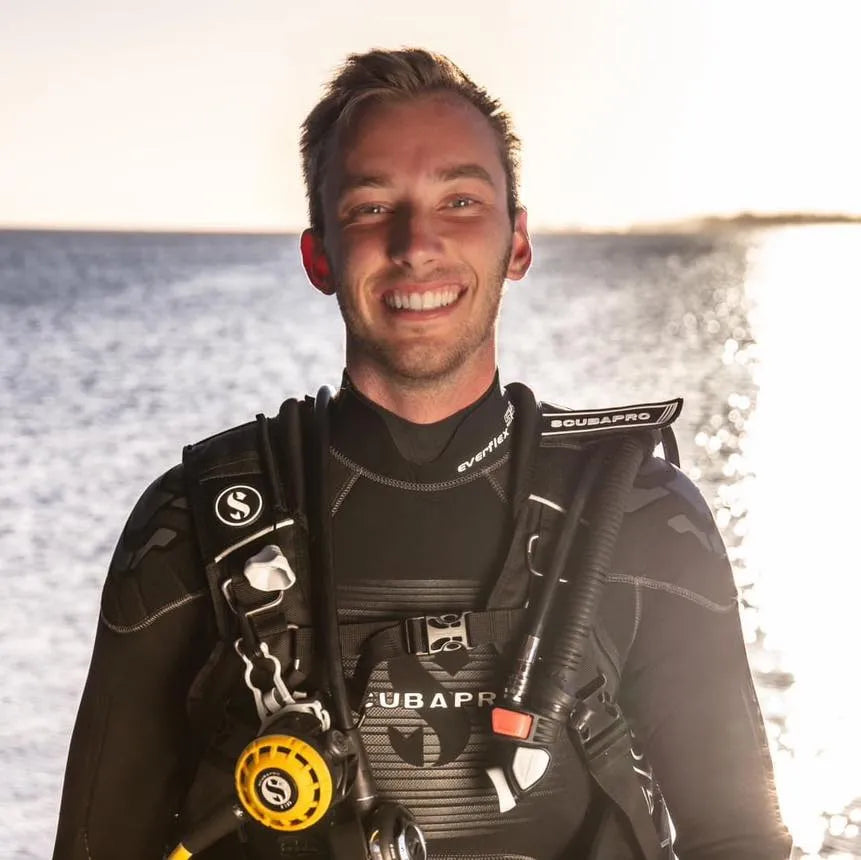Marine biology and conservation are fields that not only uncover the wonders of the ocean but also play a crucial role in protecting marine ecosystems. Today, we speak with Alex O'Brien , a dedicated marine biologist who has turned his passion for the ocean into a career focused on research, conservation, and education. From his early inspirations to the groundbreaking discoveries he's been part of, we explore his journey, his role with Operation Wallacea, and the impact of his work across multiple marine research sites worldwide.
What led you to a career in marine biology and conservation?
At a very fundamental level I must confess it would likely have been David Attenborough! I always loved spending time by the water, nature and just a curiosity for the living world and all the biodiversity that exists on our precious planet. I first went SCUBA diving at 15 and was so fascinated by the marine world I pretty much decided there and then that I would pursue marine biology at university. As for conservation, I think that naturally comes next when someone falls in love with living things and the natural world and we see areas become degraded under the stewardship of our species.
Have there been any surprising or groundbreaking discoveries from your research?
The natural world overall is packed full of surprising discoveries, it is not uncommon to conduct a research study and not find what you were expecting!! As for the most exciting findings from recent research we have conducted, the first one to mind is from a PhD candidate from a few years ago who investigated lionfish populations across deeper mesophotic reefs. Culling of the invasive lionfish is common around the Caribbean, and aims to suppress the population across reefs to lessen their devastating impact. He found that these deeper reefs (where recreational divers can't access) not only act as a refuge for the lionfish that find themselves down there, but that the larger, reproductively active females that are down there likely act as a source for lionfish that keep returning to the shallow reefs.
What surprises me the most, though, is still how much we have to learn about coral reefs and the marine environment overall! We were approached by a research group a few years ago to investigate how sandy islands form across the Caribbean, as it turns out that this had been studied already in the Pacific, but little was known about how much this applied to the Caribbean! I don't think that I'm alone in saying when someone says Caribbean the first image in my head is a sandy island, and yet nobody knew how they formed?!
What is the mission of Operation Wallacea, and how has it evolved over the years?
The mission for Operation Wallace has always been to collect high-quality data to support conservation and provide opportunities for students and researchers to gain field experience. The evolution of Opwall mostly comes at the site-level. When we first go to a new area the main priority is to collect baseline data on the biodiversity & ecology. We partner with local groups to facilitate our staff and participants being in-country, and partner with them if they are already involved in conservation efforts or are collecting data on their environment. Then our academic partnerships facilitate the publication of peer reviewed papers into scientific journals to share the knowledge of these areas with the wider scientific community.
Usually, the next step is to support the local groups to push for protections being put in place, or to provide suggestions for the management plans for existing protected areas. As time goes on and our understanding of these environments grow, we can develop more specialised research projects and bring in PhD students to study individual groups, species, or interactions. This aims to develop a deeper understanding of the ecosystem, which can aid in targeting conservation efforts or even support requests for further protections to be put in place.
Can you share some more information about the different marine research and conservation programs you manage in Mexico, Honduras, Indonesia, Croatia, Madagascar and South Africa?
They are all quite different, as you can imagine the conservation goals of each site are different, with the environments themselves being different with unique challenges to each. I will outline a brief description of the aims of each site and highlight the core research at each of them. If you want to dig into these a little more, most of the research projects are described here for prospective dissertation students here.
Honduras
This is where I spend my summers, as we actually have our two most active marine research sites, and good comms for me to be able to assist other countries remotely! The first site is on the island of Utila, which has a pretty typical Caribbean reef system. As we have been operating here since 2004, this site is very well established and we have plenty of bespoke research projects going on each year. Our main focus here is to advance the use of technology to support the monitoring of reef health, from specialised Stereo-Video Systems (SVS) to get accurate measurements of fish (which allows for us to calculate biomass), to large-scale 3D models of the reef itself to build an understanding of how it is changing over time. We have also been researching the behaviour behind interactions at cleaning stations across the reefs too!
Our second marine research site in Honduras is on the mainland at Tela. This reef was discovered fairly recently and we began to operate there back in 2012, it is a turbid reef and by pretty much every metric you wouldn't expect a coral reef to be there... Turbid water, extremely varied freshwater input, high nutrient loading and a slow flushing time are not what we usually associate with a coral reef in the Caribbean, and yet historically it is one of the reefs with the most hard coral per metre out there! Here, we study the invasive lionfish population as well as our standard monitoring with SVS and benthic video surveys in a bid to see what makes this reef so resilient to the conditions it thrives in.
Mexico
Here our research has historically focused on the seagrass and turtles of Akumal bay. It is a relatively small bay on the east coast of the Yucatan and is home to an extensive seagrass bed, which is very much enjoyed by the resident sea turtle population. Akumal bay quickly received a reputation for being the place to go to see turtles, and tourists flocked to the bay in huge numbers. With tourists donning fins to chase the turtles to get a closer look, and some even touching or grabbing at the turtles, areas of seagrass became damaged, and the turtles became so stressed they began to suffer from the FP virus, resulting in tumour-like growths. After research into the behaviour of both tourists and turtles, Akumal bay was made into a wildlife refuge in 2016, and now there are protections put in place for the turtles and seagrass, with tourists only allowed to enter the water with a licensed guide, tourist exclusion zones for turtles to rest and rules on wearing life jackets and no fins to prevent further damage to the seagrass.
Indonesia
Our Indonesia site has been running since Operation Wallacea began (The Wallacea region is an area in Indonesia which is where we get our name!). Here we are collecting our standard monitoring data with SVS for fish populations and biomass, and benthic video surveys for reef health - amazingly we now have over 20 years of reef monitoring data for this site!
We also have two new research projects here for 2025. The first is investigating the ecological implications of coral reef's transition to sponge-dominated reefs, which we are seeing across many areas across the world, although little is understood about what impact this has on wider coral reef communities. The second new project is investigating the potential of deep mesophotic reefs as refuges for sharks, rays and other predatory fish, as we see so few in recreational diving depths across this area!
Croatia
Here our research follows the ecology of sea urchins and the role that they play in the Adriatic. With a large fishing pressure on the predatory fish in the area, the predators of urchins are being fished out in great numbers. This can lead to population booms of sea urchins which then consume the seagrass beds across the region, forming what are known as urchin barrens. We are therefore studying the ecology of these urchin barrens and seagrass areas, comparing the fish and invertebrate communities that are supported at each. The core aim of much of our research here to aid in pushing for further protections to be put in place for seagrass species/areas due to their importance in this ecosystem.
Madagascar
This is a relatively new site, we have been collecting our standard monitoring data with SVS for fish populations and biomass, and benthic video surveys for overall reef health for a couple of years. In 2025 we have a new project with a research group joining us to study the anemone populations and conduct some investigations into the mutualistic anemonefish!
South Africa
Our South Africa site does not yet have any active research, it is currently an educational site where students learn to dive and go through our reef ecology course to learn about coral reefs, their stressors and how to survey them. The reef around this site has already been granted UNESCO world heritage site status, although in the future there may be research that we could conduct that could help inform the management of this area.
Can you tell us more about your role in supervising students through Opwall?
A part of my role is to supervise our marine dissertation students, these can be at an MSc or undergraduate level. I work with the student themselves and their university supervisor to develop a research project within one of our topics for them to collect data for in the expedition season. The student spends their expedition with a research project lead on-site, and the student goes home with the data to write up their dissertation/thesis. For our PhD candidates, I am an external supervisor/CASE partner and provide support to the candidate and their wider research team to plan their projects. The candidate then leads the data collection as a staff member on the site over several summers to then write this up for their PhD.
What advice would you give to someone who wants to work in field-based conservation research?
The best thing you can do is to just go out and get involved! Don't worry if you are not an expert in any field, or you do not know which to get involved with first - most of the activities that are available to get involved in provide the required training there, and if you try something and do not enjoy it then at least you've ticked that off the list. Fieldwork is so incredibly varied that you will likely have to try a few different aspects of it to find the right "type" for yourself. Either heading out and joining local beach cleans, getting certified as a marine mammal medic or collecting data for a citizen science project like the Big Seaweed Search, you will be gaining experience and testing the waters to see what you enjoy.
My biggest piece of advice comes here; when you are talking to people at these events, or generally anyone connected to field-based conservation, talk to them about what you want to so and ask them if they have heard of any opportunities that might suit you! So many people are interested in conservation, to some it is a day out, others a chance to connect with nature. If you are someone who wants to pursue a career in it, let people know and start those conversations! The more connections you make, the louder you shout and the more you get involved the more people will think of you when something comes up!
If you could point to one project that exemplifies the hope and potential of conservation, which would it be and why?
For me personally it is the research that we are conducting on Utila with novel technology to advance reef monitoring efforts. So many marine survey techniques are reliant on a slate, pencil and someone with training who can identify species underwater. Underwater cameras are not only getting better, but cheaper too! That combined with technological advancements in recognition software and AI's capabilities make me a strong believer that soon we will be able to create systems of incredibly robust data of coral reefs with minimal input from human annotation. Currently even our set-up for SVS surveys requires an expensive rig and bespoke software where we spend hours identifying and measuring each fish we see. Imagine in the future where you have a can train a model to identify and measure all the fish seen in footage, and a rig that is cheap enough to allow people all over the world to survey their reefs! The amount of available data that would be able to be collected across marine environments globally would be incredible, and all these places would be able to make more informed decisions on the protections required at the site-scale!
Find out more
The challenges facing our oceans are vast, but so are the opportunities for conservation and discovery. Through dedicated research, collaboration, and the use of innovative technology, scientists like Alex O'Brien are paving the way for a better understanding and protection of marine ecosystems. His advice to aspiring conservationists highlights the importance of hands-on experience, curiosity, and networking. With ongoing efforts in marine research and the hope brought by technological advancements, the future of ocean conservation looks promising.


Come and join us!
Join us every Saturday at 10am at the Fittie end of Aberdeen beach for invigorating dips in the sea. The refreshing waters will not only revitalize your body but also uplift your spirits, offering a perfect blend of mental clarity and physical well-being.
For updates on volunteering at beach cleans, joining adventure days, and other upcoming events please see our social media pages.
The ultimate guide to unlocking the full potential of one of nature's most powerful resources.
Cold water has been used for centuries as a natural remedy to promote health, vitality, and well-being, and its benefits are backed by science.
Whether you're a seasoned cold water enthusiast or just starting out, this comprehensive guide will provide you with all the information you need to harness the power of cold water and take your health and wellness to the next level.










Shark Myths, Net Hunting, and Seashell Art: February Recap
Movie Sets, Marine Heroes & Icy Dips: March Recap